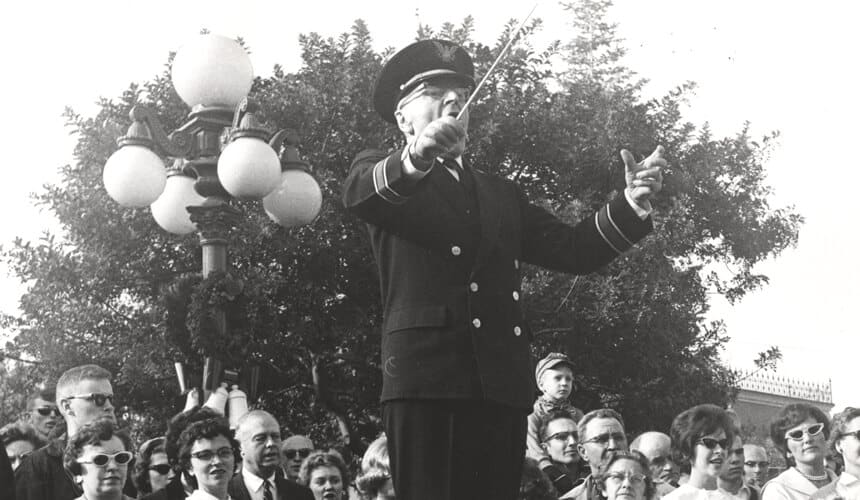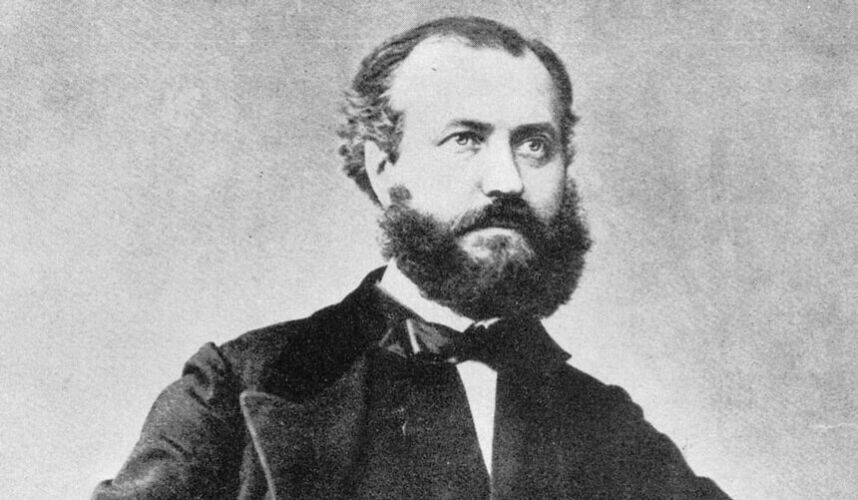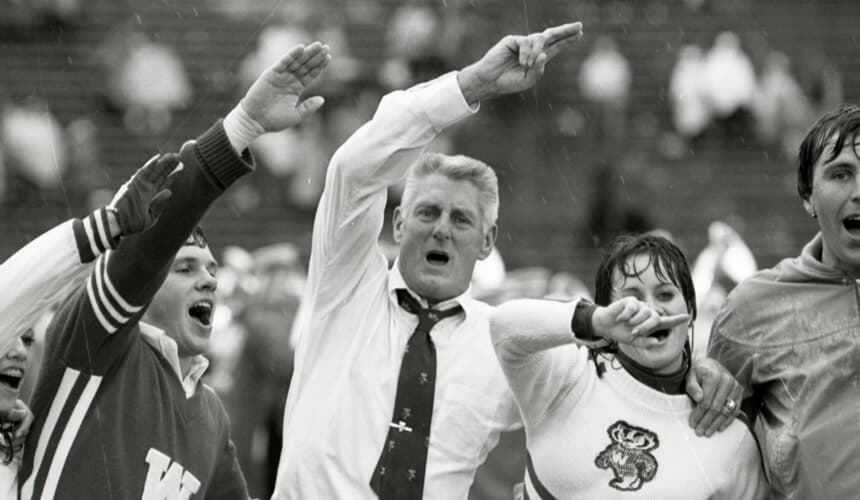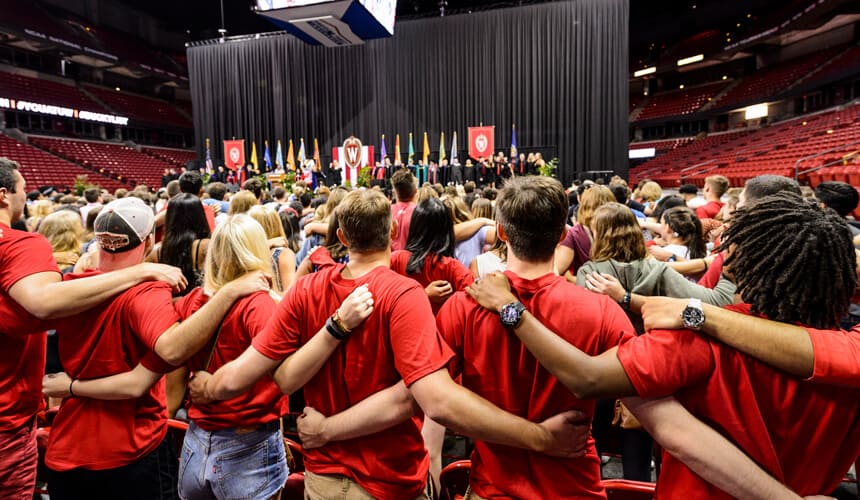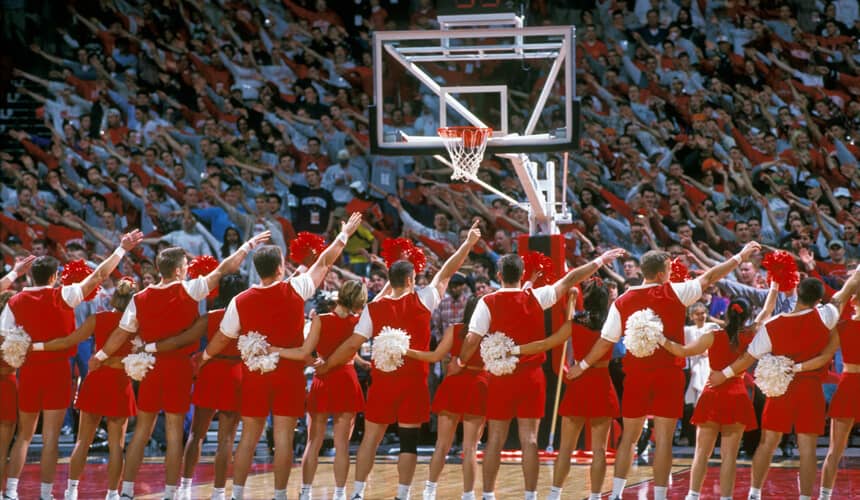Origins of Varsity
Varsity! Varsity!
“A great University is a singing University.”
Charles Kendall Adams, UW president 1892-1902
Listen while you read: President Dykstra’s War Convocation (1941) with Varsity
Check out other renditions of On Wisconsin and other great UW audio on the Alumni Park Playlist.
Varsity! Varsity!
U-rah-rah! Wisconsin,
Praise to thee we sing!
Praise to thee, our alma mater,
U-rah-rah! Wisconsin!
In 1898, UW music and choral instructor Henry Dyke Sleeper published a songbook that included “Varsity Toast,” a song he intended as a new “invocation and battle slogan” for the UW. (The original definition of the word “varsity” is a shortening of the word “university.”)
Sleeper set his lyrics to an adaptation of an 1853 motet written for Napoleon III by French composer Charles Gounod. The original motet, or short hymn, was called “Domine Salvam Fac,” or “O Lord, save,” and singing a variation of it became a customary way to end a Catholic mass. How exactly the tune made its way across the Atlantic to Sleeper is unknown, but Gounod was a prominent opera composer (he’s most known for his versions of Faust and Ave Maria), so it’s not terribly surprising that a music instructor in Madison would be familiar with his work.
In 1934, Wisconsin Band director Ray Dvorak invented the now-famous “arm swing” that typically accompanies the song. Under Dvorak, the Wisconsin Band developed a national reputation for its innovative half-time performances — a reputation the band maintains today.
We have one alumna in particular to thank for recording the origins of “Varsity.” In 1948, long-time university news writer Hazel F. McGrathBA 1944 documented the history of the song and its significance to the Badger community. She wrote, “For almost half a century ‘Varsity’ has held a warm place in the hearts in the hearts of generations of Wisconsin graduates. Wherever they are they never hear ‘Salvam Fac,’ the old Latin hymn composed by Gounod, from which the University hymn has been adapted, without a deep sense of nostalgia for their lost youth: for icy winter mornings tramping up the hill to eight o’clock classes, for warm spring noons lazing on the grassy knolls, and for starlit evenings drifting over moonlit Lake Mendota.”
Some traditions never change.
 58° F
58° F